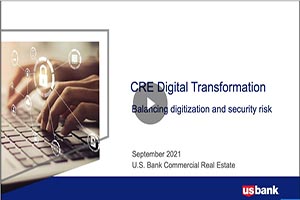Key elements of a full-service, middle-market service provider
As more participants enter this increasingly competitive environment, middle-market professionals need to focus on serving their clients, sourcing deal flow and managing their credit exposures. They can’t afford the roadblocks associated with inefficient, inadequate back-office operations or systems that don’t seamlessly interact. An all-in-one solution provides key resources to help overcome these issues.
Advantages of partnering with a full-service provider include:'
Seamlessly integrated products and a team of experts: The service provider should have a dedicated team of middle-market loan experts that are well versed in the unique nature of the asset class and focused on delivering top-tier client service. The combination of the trustee and custodian platform and a fund administration product and loan agency offering is essential for operational efficiency. Each service should be specifically designed with the middle market in mind and include experts with decades of experience in complicated transactions. These experts must understand the relationship of the lender and the borrower and manage the constantly changing loan terms endemic to this market.
Online access to account information: It’s essential for a service provider to have a web portal that provides on-demand views into daily cash, and real-time federal reference numbers for wires, holdings and compliance test information. A fully customized reporting platform should feed into the portal, which can be accessed directly by the alternative investments fund administration team. This eliminates many of the inefficiencies around financial reporting periods.
Use of an independent accounting system:
The full-service provider’s loan agency team should use an independent accounting system to:
- Track lender and borrower information
- Track cash and loan attributes
- Automatically create and deliver notices
It’s critical the notices are clear, concise and on time, and that they include all necessary information in the correct format. Additionally, the service provider should be willing to white label their services. That way, the direct lender can maintain the relationship with the borrower but doesn’t need the staff or technology systems in place to generate notices or process payment and interest payments.
Alignment of goals and priorities
A provider with comprehensive middle-market solutions understands the goals of direct lenders, which can help improve flexibility and efficiency in an ever-changing market. By selecting an all-in-one service provider:
- Borrower payments are more likely to be on time and accurately reflected in investor reports
- Loan agent notices are more likely to be in standardized formats and easily digestible by optical character recognition technology
- Fund financial statements can be turned around in a shorter time frame with fewer necessary revisions
With a reliable full-service partner, you can trust the back-office operations of your business are running smoothly and compliantly – providing you with more time to spend on expanding your business and serving your clients.
At U.S. Bank, we provide expansive, multi-functional support to help you reach your goals. Learn more about the comprehensive trustee, custody, administration and agency services we offer to middle-market lenders.
















































